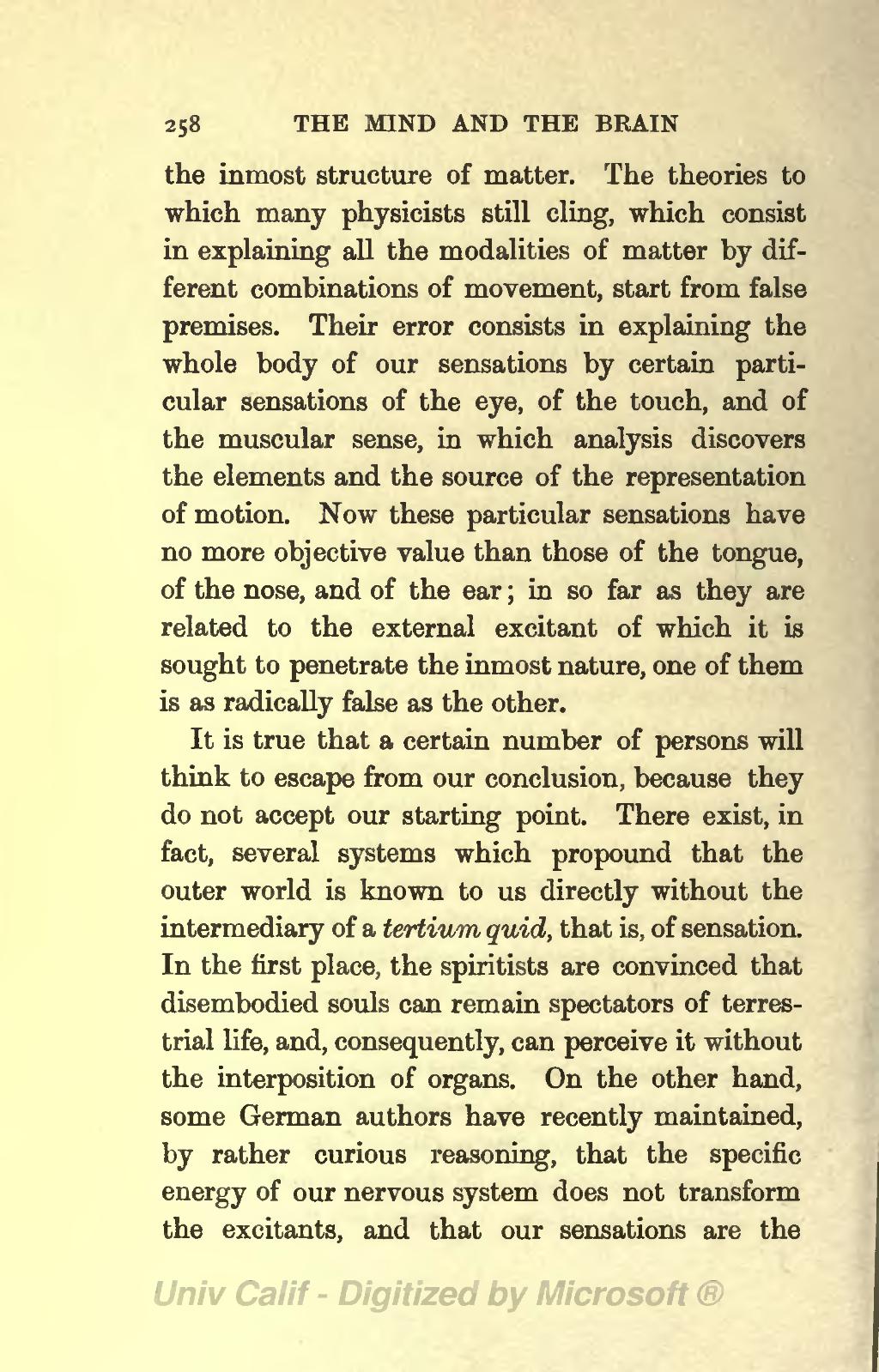the inmost structure of matter. The theories to which many physicists still cling, which consist in explaining all the modalities of matter by different combinations of movement, start from false premises. Their error consists in explaining the whole body of our sensations by certain particular sensations of the eye, of the touch, and of the muscular sense, in which analysis discovers the elements and the source of the representation of motion. Now these particular sensations have no more objective value than those of the tongue, of the nose, and of the ear; in so far as they are related to the external excitant of which it is sought to penetrate the inmost nature, one of them is as radically false as the other.
It is true that a certain number of persons will think to escape from our conclusion, because they do not accept our starting point. There exist, in fact, several systems which propound that the outer world is known to us directly without the intermediary of a tertium quid, that is, of sensation. In the first place, the spiritists are convinced that disembodied souls can remain spectators of terrestrial life, and, consequently, can perceive it without the interposition of organs. On the other hand, some German authors have recently maintained, by rather curious reasoning, that the specific energy of our nervous system does not transform the excitants, and that our sensations are the
